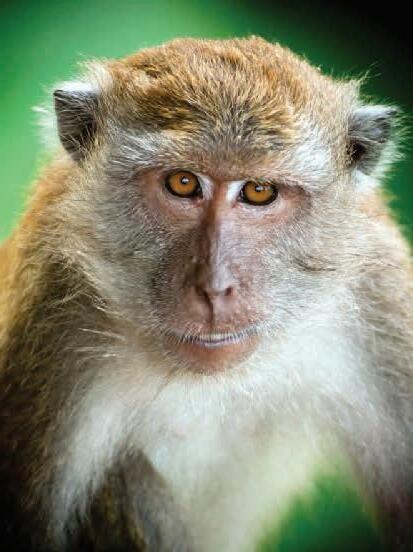
1 minute read
More Airlines Halt Primate Transport
THE TRANSPORT OF PRIMATES for use in research has been controversial for years, and now there are three fewer airlines contributing to this cruelty. Air France, Kenya Airways, and Egyptair announced in 2022 that they will no longer transport primates for research purposes.
The many dangers associated with primate transport were documented in AAVS’s 2011 report “Primates by the Numbers: The Use and Importation of Nonhuman Primates for Research and Testing in the U.S.” We found that during transport and required quarantines, primates are at risk of suffering and dying from pneumonia, dehydration, trauma, and stress, or being euthanized due to testing positive for tuberculosis.
These severe health problems are likely related to primates being shipped long distances on multiple flights. We found a shipment of macaques lasting at least 27 hours on three flights from Mauritius (an island off east Africa) to Texas, and another traveling by plane and truck on a journey lasting longer than 56 hours from Indonesia to Louisiana.
While Air France quietly announced on Twitter that it would no longer transport primates for research, Kenya Airways’ statement came days after a January 2022 crash on a Pennsylvania highway involving 100 macaques being transported from Mauritius to an undisclosed research facility. Three monkeys who escaped from damaged crates were later shot and killed. Egyptair made its announcement after activists revealed it was transporting primates for research.
Long-tailed macaques are the most common primates in research, often used in highly invasive experiments causing extreme distress and suffering, including infectious disease and biological weapons testing, developmental and neurological research, and addiction studies. This occurs despite this species being listed as vulnerable by the International Union for Conservation of Nature’s Red List of Threatened Species.






